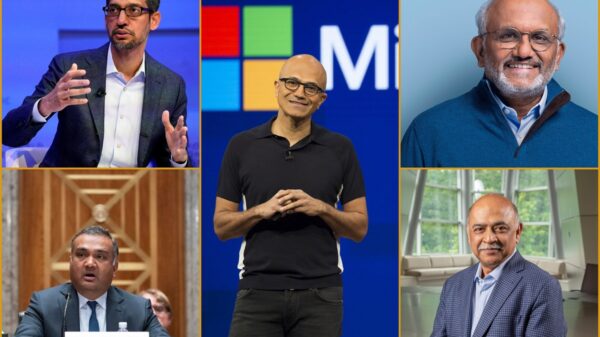
On 16 February 2023, YouTube CEO Susan Wojcicki stepped down, making way for Neal Mohan to become the new CEO of YouTube.
Mohan’s appointment as CEO of one of the world’s most prominent technology companies is yet another example of the rising competency of Indians in the global corporate arena. The number of Indians serving as CEOs of top companies worldwide is increasing at an unprecedented rate. This trend is likely to continue in the coming years.
The success of Indians in top executive roles is not a recent phenomenon. Indians have been making their mark in the corporate world for decades.
The first Indian to lead a Fortune 500 company was Indra Nooyi, who served as the CEO of PepsiCo from 2006 to 2018. Since then, several other Indians have followed in her footsteps, including Satya Nadella, the CEO of Microsoft, and Sundar Pichai, the CEO of Google.
Adobe, Chanel, NetApp and many other giant companies have Indian CEO too. The latest inclusion on that list would be Laxman Narasimhan. On 1 September 2022, Starbucks named him as its next CEO. Narasimhan will replace interim CEO Howard Schultz on 1 April 2023.
One factor that distinguishes Indians and enables them to flourish in these roles is their high educational background. India is well-known for its highly competitive education system, emphasising STEM fields (science, technology, engineering, and mathematics).
Indian students are noted for their dedication, persistence, and academic ability, which often leads to success. As a result, many Indians go on to study at world-class universities, earning significant knowledge and expertise that they may employ in the workplace.
Their excellent work ethic and entrepreneurial spirit are other aspects that make Indians successful in top executive positions. Indians are renowned for their commitment and readiness to work long hours to accomplish their goals.
In the corporate sector, where the capacity to perform well under pressure and manage challenging tasks is highly regarded, this dedication and tenacity frequently result in success.
The rise of Indian CEOs can also be attributed to the country’s economic development over the past few decades. India has experienced steady economic growth, which has created a more conducive environment for entrepreneurs and businesspeople.
The country’s economic liberalisation policies, implemented in the early 1990s, have opened up new opportunities for Indian businesses and professionals. That made it easier for them to succeed on a global scale.
While India’s rise in the corporate world is commendable, the same cannot be said for Bangladesh. Despite being a neighbouring country with a similar demographic profile, Bangladesh is yet to be able to produce many notable CEOs.
According to data from Forbes, there are currently no Bangladeshi CEOs of Fortune 500 companies. This is despite Bangladesh having a population of over 160 million and being home to many talented individuals.
One possible reason for the disparity is the quality of education in Bangladesh. Though both countries have a literacy rate of around 74 per cent, many of the top universities in Bangladesh do not rank as highly as those in India. It implies that Bangladeshi students may not have access to the same quality of education as their Indian counterparts.
Furthermore, Bangladesh’s economy depends significantly on the textile sector, which doesn’t require the same technical proficiency as the IT, finance, and engineering sectors, where Indian experts thrive. Because of this, Bangladeshi professionals possess a different degree of industry experience, making it more challenging for them to succeed globally.
The lack of opportunities in Bangladesh is also preventing Bangladeshis from obtaining top executive jobs. Bangladesh is still seen as a developing nation with an underdeveloped private sector, unlike India, which has a strong tech sector and an expanding economy. As a result, Bangladesh has fewer options for brilliant people to achieve success.
The success of Indian CEOs at top firms worldwide reflects the country’s emphasis on education, entrepreneurial spirit, and economic development.
While India continues to generate great CEOs, it is critical to recognise our country’s potential and strive toward ensuring a fair playing field for all.
The government and private sector must prioritise the development of the country’s education system and diversify its economy to create new opportunities for its professionals.